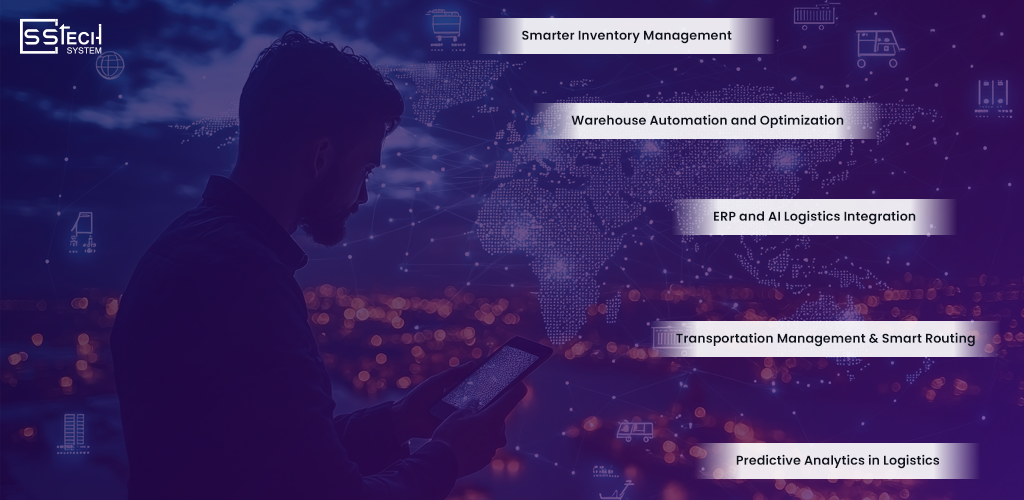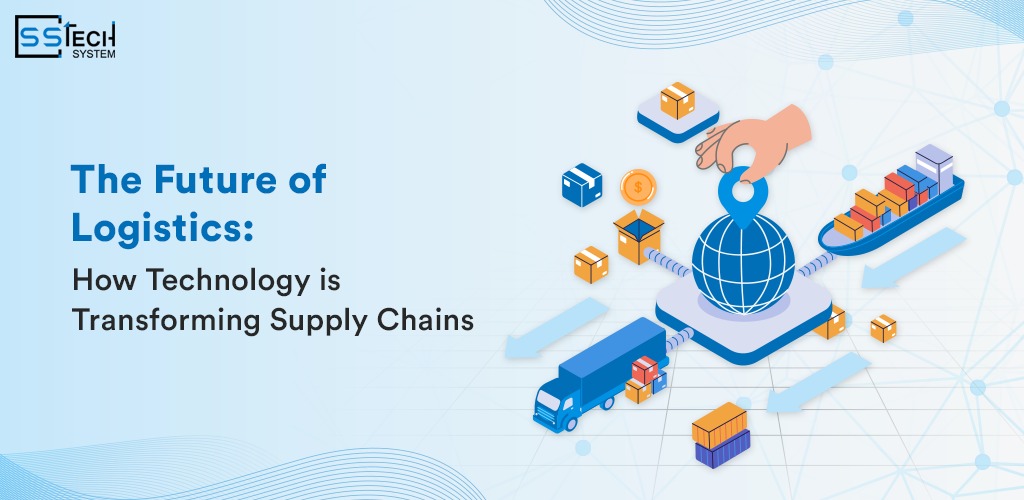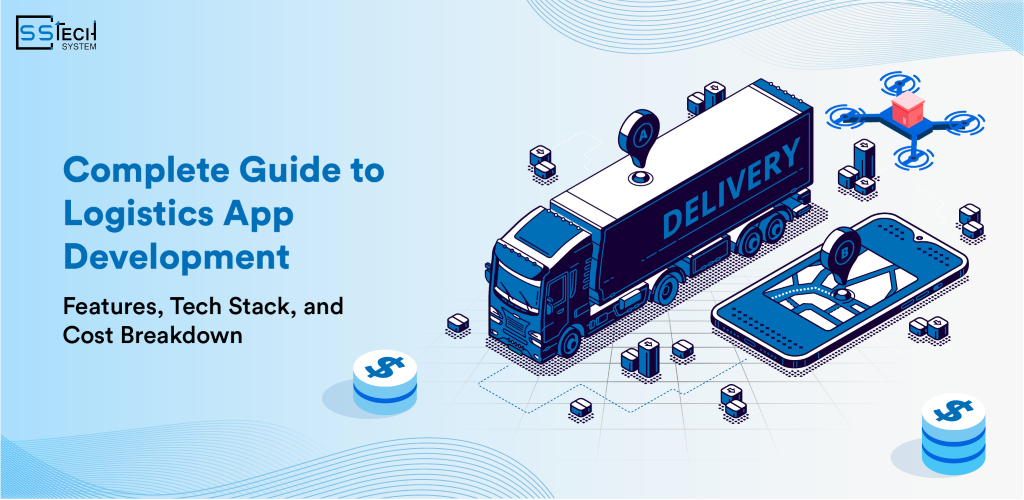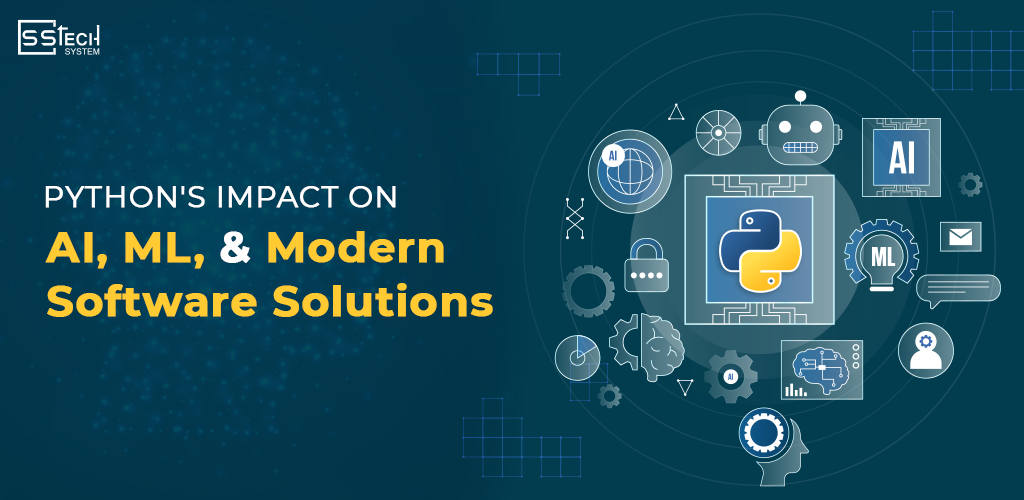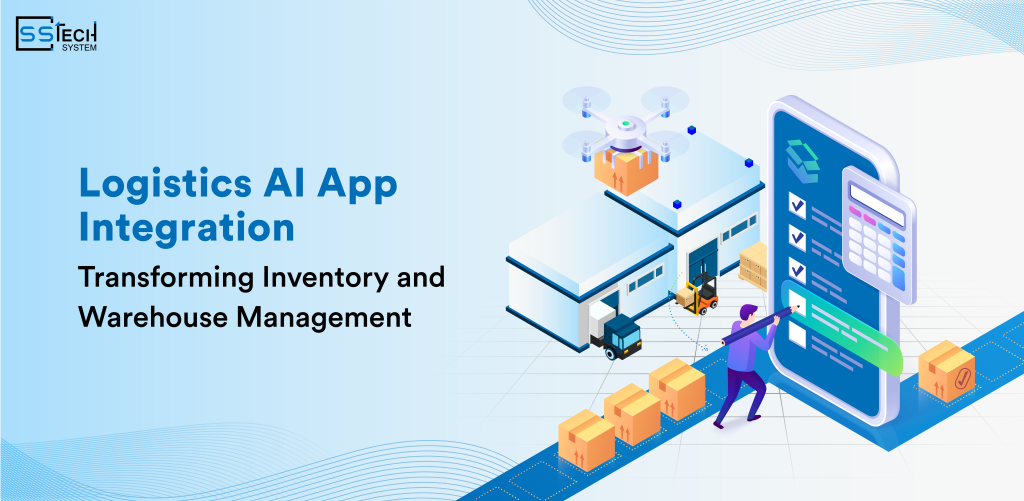
As industries worldwide rapidly digitise, logistics, once a backbone of manual operations, is finally catching up with technological disruption. Businesses across the United States, Australia, and the UAE face ever-increasing pressure to deliver goods faster, more cost-effectively, and with greater accuracy.
As fuel costs increase, the workforce becomes scarce, e-commerce explodes in popularity, and unlikely events happening around the globe disrupt the supply chain, logistics can no longer afford to be inefficient.
Logistics AI app integration comes in there. Through the integration of Artificial Intelligence into logistics, companies gain predictive power, real-time visibility, and automation, which enhances decision-making and reduces operational costs. The global AI in logistics market size was valued at USD 11.61 billion in 2023. It is estimated to reach USD 348.62 billion by 2032.
Consider a supply chain in which inventory is self-forecasting, warehouse robots pick error-free and route optimization is done dynamically based on real-time information. It is not science fiction but a reality with the use of AI-powered logistics apps and logistics AI app solutions developed by some companies such as SSTech System.
Logistics AI app integration is, in a nutshell, the flag of the next generation of smart solutions in the logistics industry – providing businesses with powerful, data-driven applications that keep them competitive, efficient and agile.
What Is Logistics AI App Integration?
Logistics AI app integration refers to the strategic integration of artificial intelligence and machine learning models into existing logistics applications or bespoke applications. These solutions range Warehouse Management Systems (WMS), Transportation Management Systems (TMS), Enterprise Resources Planning (ERP) systems, and Bespoke supply chain software.
It allows systems to:
- Predict stock demand using AI in inventory management
- Automate warehouse tasks with robotic warehouse automation
- Reduce delivery times using predictive analytics in logistics
- Improve customer satisfaction through faster and more accurate shipments
The technology does not simply automate things, it is about the smart analysis and operation on huge amounts of data in real-time. As an example, in the USA, a retail brand can utilize AI-powered logistics apps to study customer purchase behavior and make inventory decisions to avoid both overstock and stockouts. A logistics provider working in the UAE would be able to optimise multi-modal transport, forecast delays and reroute in real time.
SSTech System’s logistics AI solutions offer powerful APIs and integration layers that seamlessly connect with existing systems—no redevelopment needed. Their applications enable real-time communication between data sources and logistics processes, supporting scalable infrastructure as your business grows.
Key Benefits of Logistics AI App Integration
Implementing AI in logistics and supply chain management is not a purely technical enhancement but a strategic value. It carries with it a package of benefits that intensely transforms operational performance, minimizes the possibility of human mistakes and releases business value over the long run.
1. Smarter Inventory Management
The conventional inventory control relies on set reorder levels and old forecasting model. However, the modern market is highly dynamic and demands real-time adjustments, which is where AI in inventory management truly excels.
With Logistics AI app integration, businesses gain access to:
- Dynamic demand forecasting based on trends, seasonality, and buyer behavior
- Real-time stock alerts using IoT sensors and smart tags
- Automated replenishment systems based on intelligent thresholds
- Multi-location visibility to monitor distributed inventory across regions
SSTech System logistics software integrates with leading ERP platforms to give centralized control over all inventory, offering decision-makers immediate insights into current stock levels, supply trends, and future needs.
2. Warehouse Automation and Optimization
Inefficiencies such as misplaced inventory, inaccurate picking, and slow order fulfillment tend to plague warehouse operations. Warehouse management system with AI changes all that by using robotic warehouse automation and machine learning to be precise and quick.
Key capabilities include:
- AI-guided picking systems that minimize walking time and human fatigue
- Computer vision for real-time inventory scanning and shelf optimization
- Smart warehouse zoning to optimize storage space based on item movement frequency
- Labor scheduling algorithms to assign shifts based on workload projections
SSTech System’s warehouse management system development allows full automation of tasks like stock audits, restocking alerts, and picking list generation, freeing up human resources for more strategic roles.
3. Predictive Analytics in Logistics
The future of logistics depends on predictive analytics in logistics. Instead of responding to problems, AI development allows companies to foresee them – and get ready.
Examples of what predictive analytics can do:
- Forecast demand surges during holiday seasons or marketing events
- Identify weak links in supplier chains to avoid disruption
- Estimate delivery ETAs using historical route data and current conditions
- Analyze product return patterns to prevent future issues
Such predictive insights are gold to businesses in the UAE where international trade is a major source of income. Delays in delivery caused by congestion at the ports or customs clearance may run into millions. Under AI, warnings are given beforehand, and alternative suppliers or routes suggested.
The SSTech System logistics AI solutions are based on a new generation of models that are trained on terabytes of past and up-to-date data to give the logistics professional reliable foresight to make both daily and strategic decisions with confidence.
4. Transportation Management and Smart Routing
One of the most expensive logistics processes, as well as most vulnerable to disruption, is transportation. The development of TMS with the help of AI-powered logistics apps allows optimizing transport in real-time.
AI can:
- Determine best delivery routes based on traffic, fuel efficiency, and order urgency
- Enable multi-drop and load balancing to maximize truck utility
- Offer real-time visibility into driver location and delivery performance
- Predict maintenance issues before they become breakdowns
With SSTech System logistics software, businesses can link TMS modules to GPS, telematics, and IoT for intelligent end-to-end fleet management.
5. ERP and AI Logistics Integration
ERP platforms house the core operational data of a business. By combining ERP with AI in logistics and supply chain, decision-makers can gain real-time, context-rich insights that enhance planning, procurement, and fulfillment.
Benefits of ERP and AI logistics integration:
- Seamless alignment of purchase orders, inventory, and sales forecasts
- Instant alerts when demand shifts beyond thresholds
- Automated generation of replenishment and shipping documents
- Consolidated dashboard for strategic KPIs
This level of insight is particularly important for businesses managing multiple warehouses across the USA, or global vendors in the UAE dealing with complex documentation and import regulations. SSTech System Logistics AI Solutions support flexible integration with ERP platforms like SAP, Oracle, and Microsoft Dynamics.
AI for Warehouse Management: The Smart Backbone of Logistics
Gone are the days of pen-and-paper inventory checks or reactive warehouse maintenance. Today’s smart warehouses, powered by AI app development for logistics, use data as their primary resource.
With AI for Warehouse Management, businesses benefit from:
- Real-time sensor data for temperature-sensitive products like food or medicine
- Vision-based robots that scan and sort packages
- Voice-directed picking systems that improve speed and reduce training time
- Digital twins that simulate warehouse layouts for efficiency testing
In the USA, major retail chains are already using smart logistics solutions to reduce storage space costs by using AI to optimize every square foot. In Australia, where distance is a major challenge, intelligent automation ensures regional distribution centers are lean, reliable, and responsive.
SSTech System logistics AI solutions ensure businesses have a fully integrated Warehouse Management System (WMS) that connects to Enterprise Resource Planning (ERP), Transportation Management Systems (TMS), and eCommerce platforms, enabling seamless and intelligent warehouse operations.
Future of Inventory and Warehouse Management with AI
The future is built on intelligence and adaptability. As logistics challenges evolve, businesses will need smarter tools to maintain efficiency and resilience. Logistics AI app integration will serve as the foundational technology that enables:
- Hyper-automation, where manual intervention is nearly eliminated
- Self-optimizing warehouses that learn from performance data
- Predictive safety systems that prevent workplace accidents
- End-to-end visibility from supplier to final delivery
In countries like the UAE, where logistics supports free zones and re-export hubs, AI will play a vital role in coordinating multi-modal operations across sea, land, and air. Meanwhile, in the USA, AI will drive sustainability through carbon tracking, smart packaging, and fuel optimization.
SSTech System logistics software is future-ready, supporting advanced AI capabilities such as NLP-based customer support, autonomous delivery planning, and real-time compliance monitoring.
Conclusion: The Future Belongs to Smart Logistics
Logistics AI app integration isn’t just an efficiency tool—it’s a game-changer for global competitiveness. By AI integration in logistics, businesses across the USA, Australia, and UAE are unlocking unprecedented accuracy, agility, and scalability.
From real-time inventory management, warehouse automation, and ERP integrations, to predictive analytics and TMS development, the benefits are clear and measurable. And with SSTech System Logistics AI Solutions, you’re not just implementing a system—you’re future-proofing your entire logistics strategy.
As logistics continues to evolve, businesses that embrace AI will gain faster delivery cycles, reduced costs, smarter inventory, and higher customer satisfaction. The path forward is digital, intelligent, and autonomous—and it starts with logistics AI app integration.
Frequently Asked Questions
SSTech System logistics software offers real-time tracking, predictive analytics, robotic automation, warehouse intelligence, route optimization, demand forecasting, and complete ERP/TMS integration—all accessible via mobile and web dashboards.
While initial investment depends on scale, most businesses in the USA, Australia, and UAE see fast ROI through savings in labor, reduced inventory holding costs, and improved customer service. SSTech System offers phased implementation and customization based on business size.
AI automates repetitive tasks, enhances space utilization, forecasts inventory demand, optimizes labor allocation, and provides end-to-end visibility—making operations more agile and error-free.
Retail, manufacturing, eCommerce, pharma, FMCG, automotive, and third-party logistics (3PL) companies all benefit—especially those operating in dynamic and high-demand regions like the UAE, USA, and Australia.
